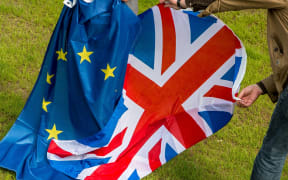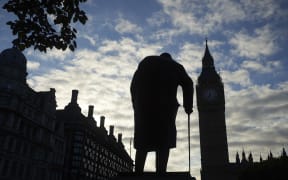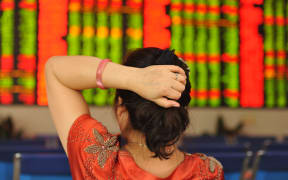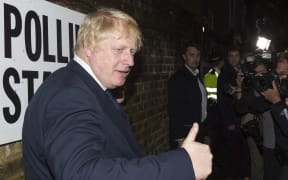Four days after Britain decided to leave the European Union the shockwaves are continuing to ripple around the globe.
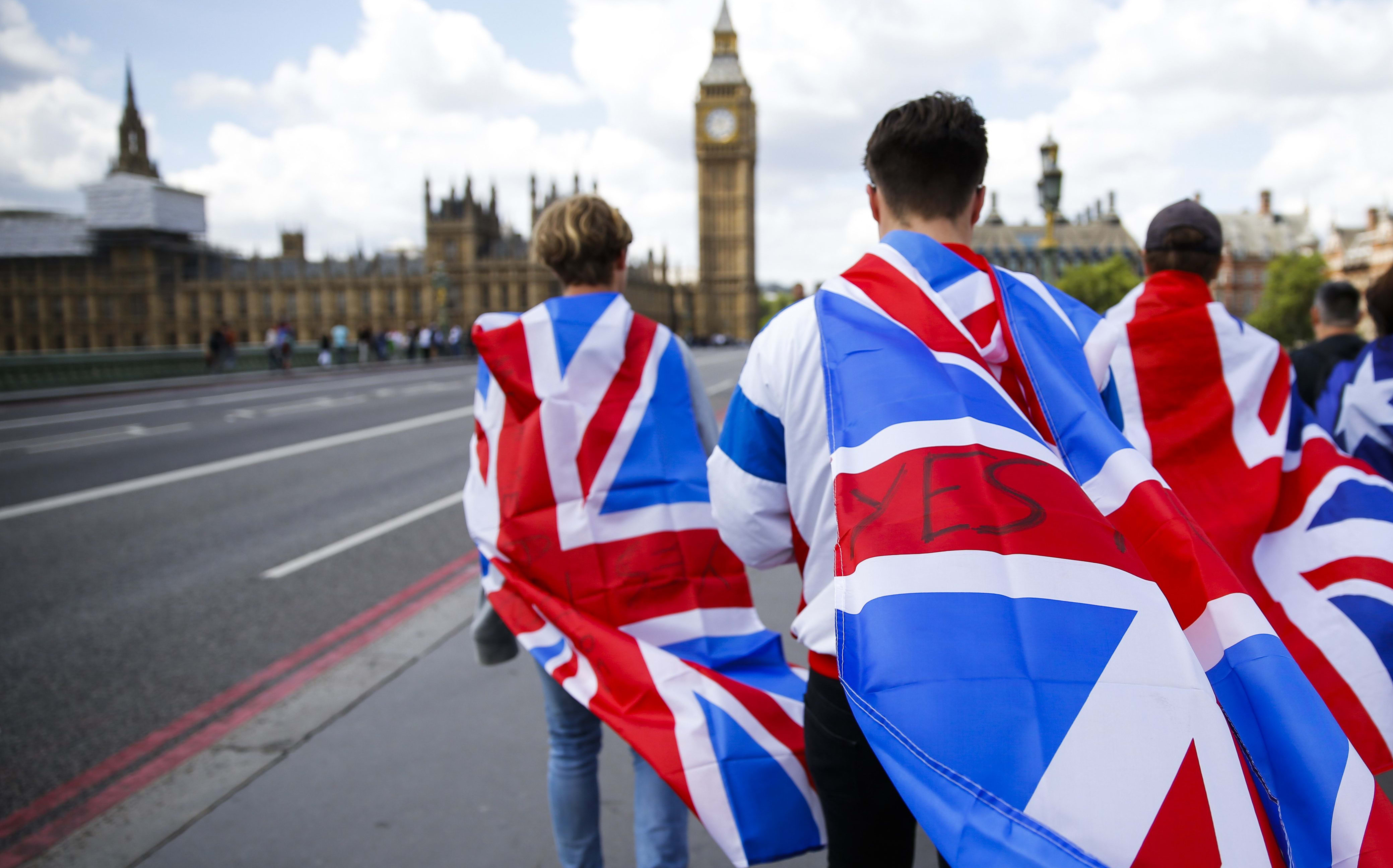
People walk over Westminster Bridge wrapped in Union flags. Photo: AFP
Predictions were of a close vote, frequently described as "too close to call", but nobody seems to have expected the UK would actually leave.
The Leave campaign won by 52 percent to 48 percent, and the 48 percent who wanted to stay in Europe have been vocal in their dismay and disappointment, with younger Brits pouring out their grief on social media under the hashtags, "Not in my name" and "What have we done".
It's being likened to a divorce, with "the children" feeling they will bear the brunt of a decision made mostly by the older generation. Young people are angry at being cut off from the continent, they despair of losing free access for travel and work across the channel, better food, and cheap holidays in sunny places, and all the advantages of being part of a multicultural 21st century world.
Still trying hard not to get all twitter political. But seeing as I love Art so much...ummm #Brexit in still life... pic.twitter.com/X1kr1kECRb
— Nilz (@nileemaz) June 24, 2016
The political fallout has also been extreme - pro-Remain British Prime Minister David Cameron almost immediately announced his resignation, and the opposition Labour leader Jeremy Corbyn, also in favour of staying in the EU, is under intense pressure to do the same, with a line of shadow ministers quitting in protest at his refusal to step down.
Mr Corbyn has said he will stand as a candidate in any Labour leadership election and will "reshape" the shadow cabinet during the next 24 hours.
London, Scotland and Northern Ireland voted in favour of Remain, while England and Wales backed Brexit.
Scotland is now planning a second independence vote to "protect Scotland's place in the EU". The idea was dubbed "indyref 2" and that hashtag shot to the top of Twitter's trends list soon after the vote result became clear.
Yesterday's poll by Scotland's The Sunday Post said 59 percent of respondents backed independence from the United Kingdom, compared to 45 percent of votes for independence at a 2014 referendum, which resulted in the country staying in the UK.
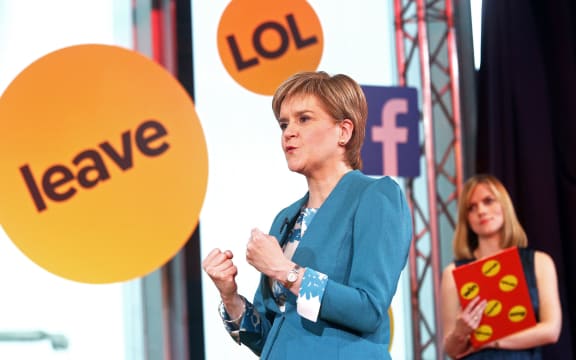
Scotland's First Minister Nicola Sturgeon will make a statement on a second independence referendum tomorrow. Photo: AFP PHOTO / BUZZFEED NEWS / FACEBOOK
Brexit has also shaken Ireland, where Northern Ireland is the only part of the UK to share a border with an EU country. The territory voted strongly to remain in the EU and while Sinn Fein's calls for Irish unity in the wake of the vote have been largely dismissed, many people are reportedly scrambling to get Irish passports so they can still have free access to Europe.
The Spanish government has called for joint sovereignty over Gibraltar in the wake of the vote. The peninsula's population of 30,000 voted overwhelmingly to remain in the EU. The "rock" has been a British territory since 1713, but Spain continues to claim sovereignty over it.
What next for Europe?
Across the channel EU politicians reacted with a huffy "go on then, go now", apart from German Chancellor Angela Merkel, who said there was no need to be "particularly nasty". But Mr Cameron, whose resignation doesn't take effect until October, has said he will not proceed with a formal exit, leaving it to his successor.
However the formal exit is handled, Britain is expected to take at least two years to negotiate its terms for exiting the EU.
Economic uncertainty is troubling not only the UK but the EU as people question whether Britain's exit will mean other EU member states pushing to leave. Far right politicians such as France's Marine le Pen are hailing the rupture, with the xenophobic undertones of the leave campaign seen as winning the day.
Commentators say the result has highlighted how splintered the country is, with poorer and less educated centres voting for leaving, while more well off areas - such as London and Newcastle - voted Remain.
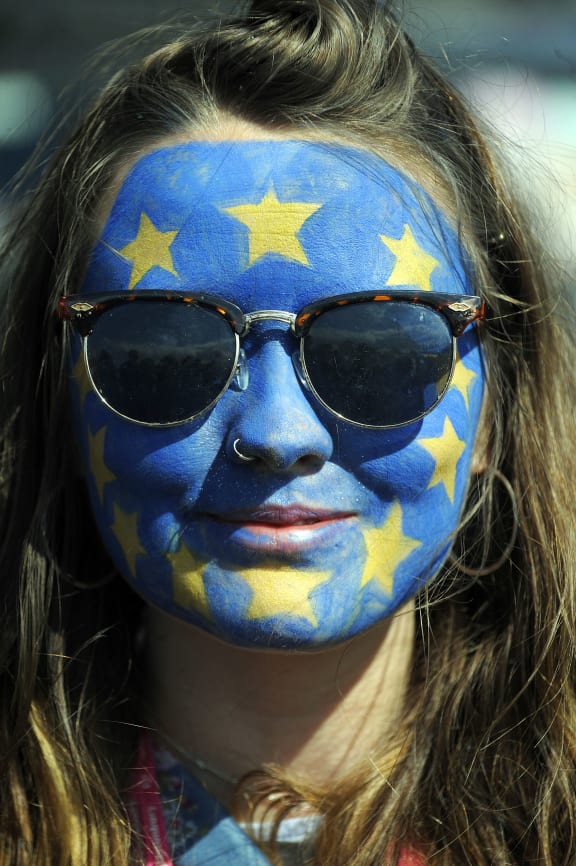
A festival-goer with a European flag painted on her face poses for a photograph on day three of the Glastonbury Festival. Photo: AFP
Fears over immigration, anger and powerlessness over economic inequality and a general distrust of the EU - "We don't want to be bossed around" - seem to have influenced the Leave vote. But the future is cloudy.
People like the anti-immigration United Kingdom Independence Party leader Nigel Farage said the day of the referendum was the UK's "Independence Day", but even the most passionate supporters of leaving the EU may be asking what that means.
Before Friday's decision, there were dire predictions that the UK leaving the EU could eventually lead to the break up of the whole bloc - if not "Western political civilisation".
Whatever the eventual outcome, it seems uncertainty resulting from the current order being thrown on its head will mean instability for years to come.
EU vs the Commonwealth?
New Zealand and other former colonies are asking what it will mean for the Commonwealth, with this country's Institute for Economic Research estimating exports to Britain could drop by $190 million a year.
In the wake of the news of the UK's break with the EU, Prime Minister John Key and Trade Minister Todd McClay both said New Zealand's economy was diversified and robust enough to weather the Brexit fallout.
They said New Zealand would seek a new trade deal with the UK as well as launching negotiations for a free trade deal with the EU.
But Ganesh Nana of economic research and analysis company BERL said the shock exit is a "body blow" to the economic outlook worldwide. He said underlying weakness in Europe, and geo-political upheaval would bring global uncertainty and vulnerability.
Dr Nana warned the country needed to "buckle in for the coming months, they will be neither smooth, nor enjoyable".
He said while this country has experienced six years of economic growth - as measured by gross domestic product - broader measures of economic health suggest the economy is not well-prepared for global turmoil.
Beef + Lamb New Zealand believes quotas will be retained, but less confident on prices. A stronger kiwi and a weaker pound or euro would mean New Zealand exporters and farmers would get paid less for their meat.
Dairy will likely be less affected - Fonterra said only 0.26 percent of New Zealand's total dairy exports went to Britain, while 2.8 percent went to the EU.
Other parts of the economy are also likely to be hit - a big drop in sterling plus a weaker British economy could mean fewer British tourists here - there were 90,000 last year.
The markets were battered on Friday after the surprise vote, with United States stocks having their worst one-day fall in five years and sterling plunging to its lowest in more than 30 years.
The pound had lost nearly 2 percent against the United States dollar in early trading in New Zealand today and the Kiwi rose further against sterling to a two-and-a-half year high, though it fell against the United States dollar and the yen.
